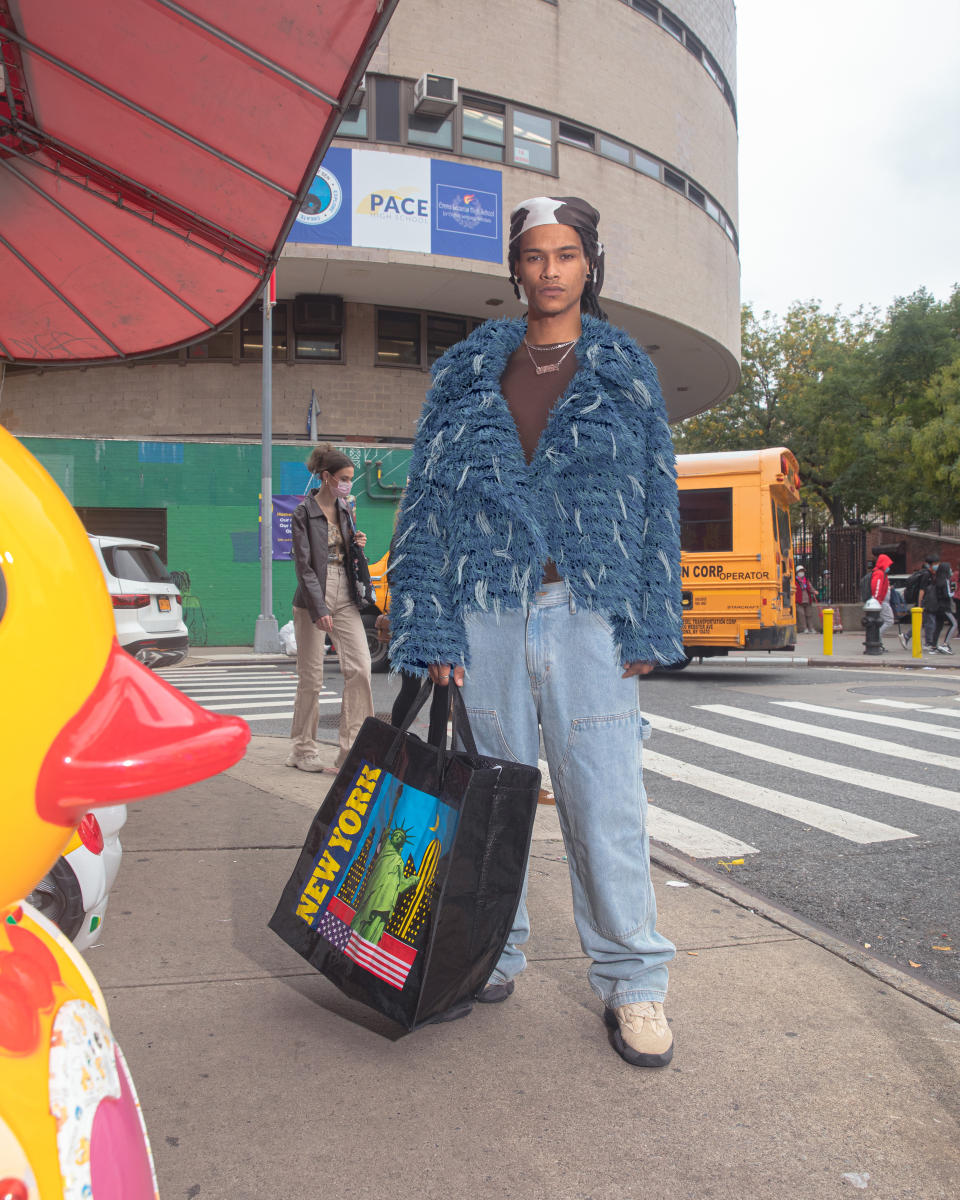Fashion-tech Start-up Zero10 Bets on Affordable Digital Clothing

LONDON — Physical events may be coming back, but for George Yashin, founder of fashion label ZNY and digital fashion platform Zero10, a democratic and digitally enhanced reality is the only way to go.
Launching on Thursday, Zero10 is an iOS application using 3D body tracking, cloth simulation and body segmentation technology to allow users to purchase, wear and collect digital garments from brands and create content for social media.
More from WWD
Yashin said he didn’t intend to break any traditional fashion industry rules or repeat what others have been doing in the augmented reality space with Zero10.

Courtesy
Instead, he believes digital fashion is a much more sustainable and affordable way to give consumers what they want and provides the same emotions as buying new, real clothes.
“We offer the industry a new type of interaction between users and brands, and this interaction has no borders — no deliveries, no production issues, no differentiation in countries, gender, race or complexion,” he said.
“The fashion industry has been stable for years. It’s changing but not evolving in a radical way and digital fashion seems like something that can finally shift this. Endless production cycles and overconsumption seem to only increase.…It’s a vicious circle. We are very close to the consumption limit. We have almost reached it and to prevent the game from destroying itself, it is important to look into new possibilities or even build them. That’s a reason we decided to join the new course and dive into the field of digital fashion,” he added.
The platform adopts a collaboration and drop model. New items will be released every two weeks and all the collections are produced in collaboration with emerging or luxury designers. Items are usually priced around $1 to $20, which is a fraction of what other major virtual fashion platforms are asking.
For the launch, Zero10 is offering 12 unisex digital items for free from brands like Ksenia Schnaider, ZNY, AV Vattev, Florentina Leitner and Ttswtrs.
The Kyiv, Ukraine-based Schnaider said she agreed to get on board with Zero10 because its infrastructure enables the brand to transition to a more sustainable model, on top of the fact that augmented reality fashion is by nature more democratic and offers a unique experience to users.

Courtesy
Yashin revealed that he named the platform after the futuristic exhibition “0,10” in 1915, which was considered as one of the most significant exhibitions in the history of the pre-revolutionary Russian avant-garde.
“It marked an important moment of transition. At ‘0,10,’ Kazimir Malevich and his colleagues inaugurated a new form of non-objective art called Suprematism. This exhibition divided the world before and after, as the old world existed up to that point could no longer remain the same.
“In fact,’0,10,’ is a point in time where the classical rules that existed before come to zero, and a new starting point begins, under which the old rules can no longer stay the same. This is the concept that we draw a parallel with when naming our product,” he added.
The entrepreneur said he is not worried that digital fashion will get sidelined after the pandemic.
“There is no big difference between virtual and physical any more. Millennials and Gen Z grew up in a world where half of their daily life and communications are online and the pandemic proved once again that none of us can imagine life without a digital space. We felt that the world and the fashion industry are finally ready to accept this and to evolve in this direction, and every day, we see the proof of it. Digital fashion is not the future of fashion — it’s present and it’s definitely here to last,” Yashin said.
“We do understand the fact that many people won’t understand digital fashion and its applicability within the physical world. However, we don’t see it as a barrier but rather an opportunity to do the product that will smooth this transition for the masses and give the entry-level understanding of what is it. We start with early adopters — those who are into fashion and content creation, and then we will see who else will join and what partners would get on board with us. It can be both gaming, art and fashion,” he added.
Looking ahead, Yashin said Zero10 has the potential to become an open platform that brands and designers could use without supervision, or provide digital solutions for major e-commerce players and physical retailers.
Sign up for WWD's Newsletter. For the latest news, follow us on Twitter, Facebook, and Instagram.

 Yahoo Finance
Yahoo Finance 